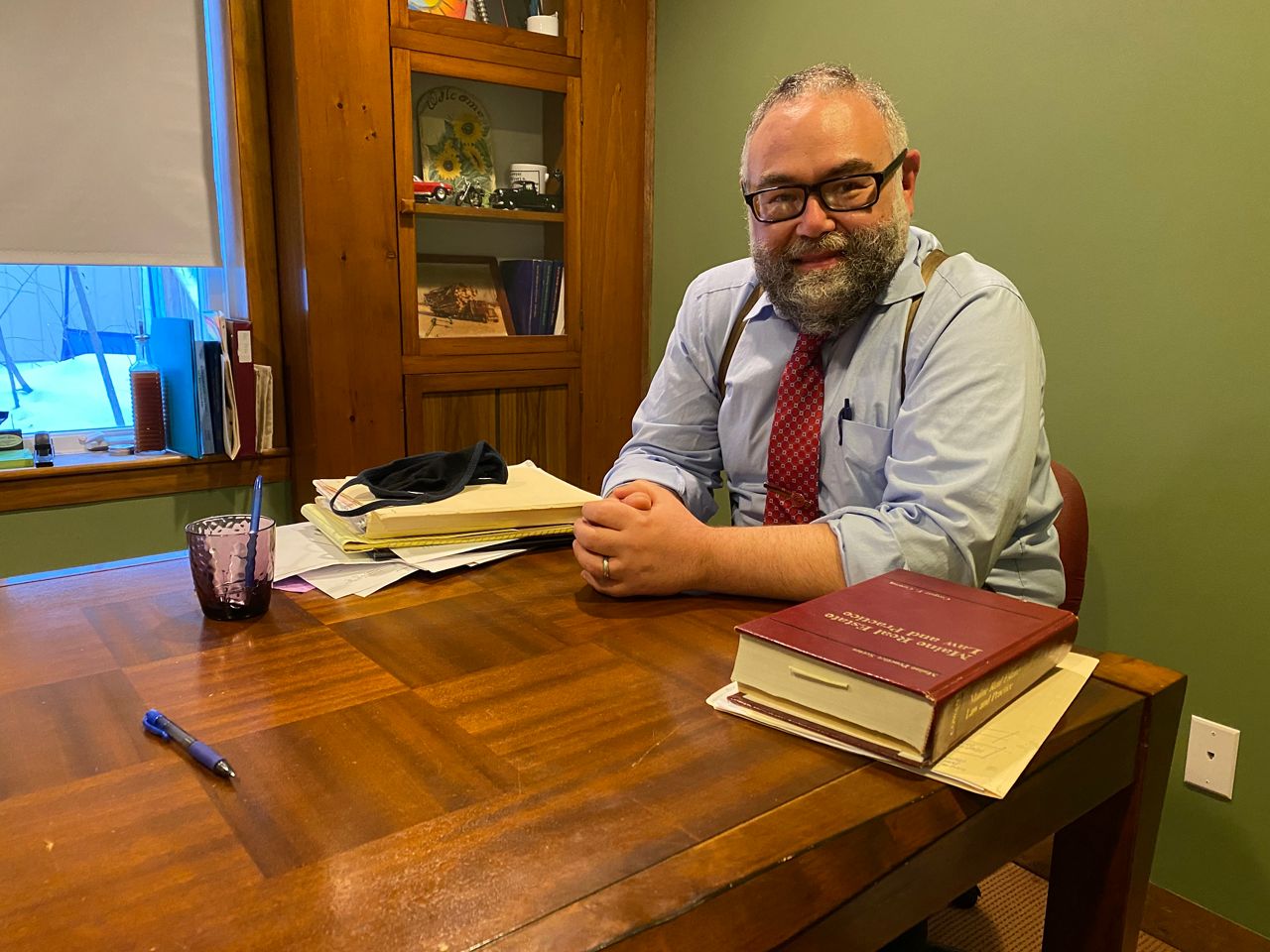Toby Jandreau was still unpacking his Ryder truck moving his law practice to his hometown of Fort Kent 13 years ago when people started calling his father to find out where his office would be located.
“We are desperately short on attorneys in rural Maine generally and northern Aroostook County especially,” Jandreau said Monday during an interview at his law office. “I’m one of the young lawyers at 45. Attracting young attorneys up here is really difficult because the only place you can train to be an attorney is in Portland.”

That’s why Jandreau and others are supporting LD 1924, which would create a legal aid clinic based at the University of Maine at Fort Kent. Bill sponsor Sen. Troy Jackson (D-Allagash) said the problem in his part of the state is two-fold: There aren’t enough attorneys and many of those who are practicing are near retirement age.
There are more attorneys in Cumberland County, 1,316, than the rest of Maine’s other 15 counties combined, with 1,170, according to the Maine State Bar Association. The group’s 2020 annual report shows just 43 attorneys in Aroostook County.
“It’s been a long-term problem, people not having any representation up here,” said Jackson, whose bill will get a public hearing Wednesday before the Legislature’s Education and Cultural Affairs Committee.
The three-year pilot project proposed by Jackson’s bill is modeled on the Cumberland Legal Aid Clinic at the University of Maine School of Law, which has been helping people in southern Maine since 1970, said Deirdre Smith, managing director of the clinic and a law professor.
In the Cumberland program, students receive a special law license to practice as student attorneys with supervision by a practicing attorney. They help 500 clients a year with “a wide range of legal problems,” Smith said.
“We’re able to help hundreds of people who would likely go without receiving any legal assistance for their problem,” Smith said.
Jandreau, who earned his law degree at the Portland law school, said it’s hard to get students to leave the Portland area once they graduate. But he thinks if they spend a semester living in the Fort Kent area, they will gain an appreciation for a different way of life.
He said practicing law in “the county,” as Aroostook is often called, is more congenial. It’s a small community where the judges know all the attorneys by name and clerks know you by your car, he said. Jandreau said he can walk to his law office, the courthouse and nearby hiking trails, all from his home.
The way he envisions it, a student could spend their first three years studying at the University of Maine at Fort Kent, spend two years in Portland at the law school, and then spend the summer or a semester back in Fort Kent.
“The thought being if we give folks this path back home maybe they’ll take it,” he said. “As it stands it’s really hard to come back home in some ways.”
Smith said if the Legislature approves the bill, the university will hire a professor to supervise the students in Aroostook County and an administrator. She said the clinic is designed to be a mini law firm that gives students the experience they need to become practicing attorneys.
“We know there are kids as young as high school in the county who have an interest in a law degree,” Smith said. “By enrolling in Maine Law, they could choose to live and learn in the county while they are law students.”
While the idea of establishing a clinic in northern Maine has been around for a while, Smith said it wasn’t until the COVID-19 pandemic that they realized it could be a reality. That’s because students will now be able to take at least some law classes online while living and working more than five hours away.
Bill co-sponsor Sen. Trey Stewart (R-Presque Isle) says that would be a welcome change. A law school student himself, he said it is difficult to attend classes in person in Portland and he senses a reluctance among the law school faculty to make the switch to remote learning permanent.
“The best thing this school could do is offer all of your stuff hybrid,” he said. “That’s how you solve the problem in rural Maine.”
